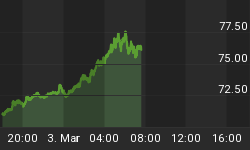House prices are collapsing, which means that homeowners' equity in their houses is plunging. According to Federal Reserve flow-of-funds data, homeowners' equity dropped by $399 billion quarter-to-quarter in Q1:2008 and $880 billion year-over-year - both record absolute declines (see Chart 1). The drop in homeowners' equity contributed significantly to the $1.7 trillion decline in household net worth in the first quarter (see Chart 2).
Chart 1
Chart 2
Economists refer to something called the "wealth" effect. It is hypothesized that households tend to spend relatively more of their income when their wealth is increasing and vice versa. Mind you, households do not have any more cash in hand to spend when the value of their stock portfolios or houses go up. They are just wealthier "on paper."
In this past cycle, it had become very easy for households to turn their increased "paper" housing wealth into actual cash by borrowing against their increased home equity. This borrowing is called mortgage equity withdrawal, or MEW. Active MEW can be defined as mortgage equity withdrawal consisting of refinancing and home equity borrowing. In contrast, inactive MEW consists of turnover. At an annualized rate, active MEW peaked at $576 billion in the second quarter of 2006. Active Mew has slowed to only $114 billion in the first quarter of this year - the smallest amount since the fourth quarter of 1999 (see Chart 3). There is no doubt in my mind that active MEW, which actually puts additional cash into the hands of households, played an important role in boosting consumer spending in this past expansion. And there is no doubt in my mind that the recent and likely continued decline in active MEW will play an important role in retarding consumer spending in this recession. Because it has been easier to borrow against the increased wealth in one's house than in one's stock portfolio, dollar-for-dollar, falling house prices will have a more important negative effect on household spending that will falling stock prices.
Chart 3
















